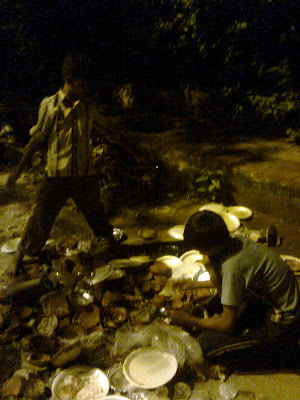The two combined to work out a miracle in the realm of human efforts. Helen later became a member of the Socialist Party of America and the Wobblies and campaigned for women's suffrage, workers' rights, and socialism, as well as many other leftist causes.
I am re-producing an article by Helen on emotion, perception and ways to deal with MISFORTUNE, as understood by many.
***
Misfortune cannot be conquered by furious and continuing resentment. We win victory over bereavement only when we face our loss, accept our loss, and then make our way through and beyond our loss. You ask how we make our way through it and beyond it?
We do so by deliberately re-entering the world of daily activity- the busy world of problems, duties, friendships, opportunities and satisfactions. A resentful, self pitying life is a doomed life. Only the life that picks up and starts again is victorious.
The loss of a loved one is a sorrow all of us must eventually face, and never is help more needed than during the first dark days of bereavement. The true way to mourn the dead is to take care of the living who belong to them.
The loss of a loved one is a sorrow all of us must eventually face, and never is help more needed than during the first dark days of bereavement. The true way to mourn the dead is to take care of the living who belong to them.
Believe when you are most unhappy, that there is something for you to do in the world. So long as you can sweeten another’s pain, life is not in vain.
Robbed of joy, of courage, and of the very desire to live, the newly bereaved frequently avoids companionship, feeling himself so limp with misery and so empty of vitality that he is ill suited for human contacts; and yet no one is so bereaved, so miserable, that he cannot find someone else to help in their time of need; someone who needs friendship, understanding, and courage more than he.
The unselfish effort to bring cheer to others will be the beginning of a happier life for ourselves. Often when the heart is torn with sorrow, spiritually we wander like a traveller lost in a deep wood. We grow frightened, lose all sense of direction, and batter ourselves against trees and rocks in our attempt to find a path.
The unselfish effort to bring cheer to others will be the beginning of a happier life for ourselves. Often when the heart is torn with sorrow, spiritually we wander like a traveller lost in a deep wood. We grow frightened, lose all sense of direction, and batter ourselves against trees and rocks in our attempt to find a path.
All the while there is a path- a path of faith-that leads straight out of the dense tangle of our difficulties into the open road we are seeking. Let us not weep for those who have gone away when their lives were at full bloom and beauty.
Who are we that we should mourn them and wish them back?
Life at its every stage is good, but who shall say whether those who die in the splendor of their prime are not fortunate to have known no abatement, no dulling of the flame by ash, no slow fading of life’s perfect flower.





















